
30 Portuguese gift ideas for all
From fabulous or unusual gifts to little ones... For him, for her or for the little ones... Discover 30 Portuguese gift ideas for Christmas
Erected on the banks of the Tagus River, not far from the Belem Tower, the Monument to the Discoveries (Padrão dos Descobrimentos) is a monument dedicated to the period of Portuguese explorations and conquests of the 15th and 16th centuries.
In 1940, the Monument to the Discoveries, designed by the architect Cottinelli Telmo and the sculptor Leopoldo de Almeida, was erected for the first time in an ephemeral manner and built in plaster around a light structure of iron and cement.
 Padrão dos Descobrimentos 1940
Padrão dos Descobrimentos 1940
In 1960, to commemorate the 500th anniversary of the death of Henry the Navigator, the monument was rebuilt with pink stone from Leiria and limestone from Sintra for the sculptures. It was remodeled in 1985 by the architect Fernando Ramalho, who added a belvedere, an auditorium and exhibition rooms.

Today, the Padrão dos Descobrimentos, a must-see monument in the Lisbon landscape, is visited by millions of tourists every year. Few of them, however, wonder about the identity and contribution of the 33 figures that appear there
In Portugal, explorations began very early. As early as 1325, King Alfonso IV of Portugal encouraged maritime trade and launched the first expeditions. But it was not until 1414 and the capture of Ceuta in Morocco that the Portuguese embarked on major explorations designed to compete with land-based trade routes across the Sahara.

In less than a century, the entire globe was covered by new maritime routes. More than 50 Portuguese navigators distinguished themselves in their discoveries, but history will mainly remember the names of Henry the Navigator, Bartolomeu Dias, Vasco de Gama and Magellan.
The Padrão dos Descobrimentos (Monument to the Discoveries) honors the men who participated in the great Portuguese discoveries during the last century. It represents a stylized caravel that sets sail with the infant D. Henrique, nicknamed Henry the Navigator, at the bow and 32 protagonists of the Portuguese expansion overseas.
There are navigators, cartographers, warriors, colonizers, evangelizers, chroniclers and artists. We have made a tour of this monument, here are the names of the 32 contributors to the great Portuguese discoveries that are represented there.

Peter of Portugal, 1st Duke of Coimbra, nicknamed the Infant of the Seven Parts of the World because of his incessant travels around the world. In 1415, he accompanied his father in the conquest of Ceuta, whose capture marked the beginning of the great Portuguese discoveries.
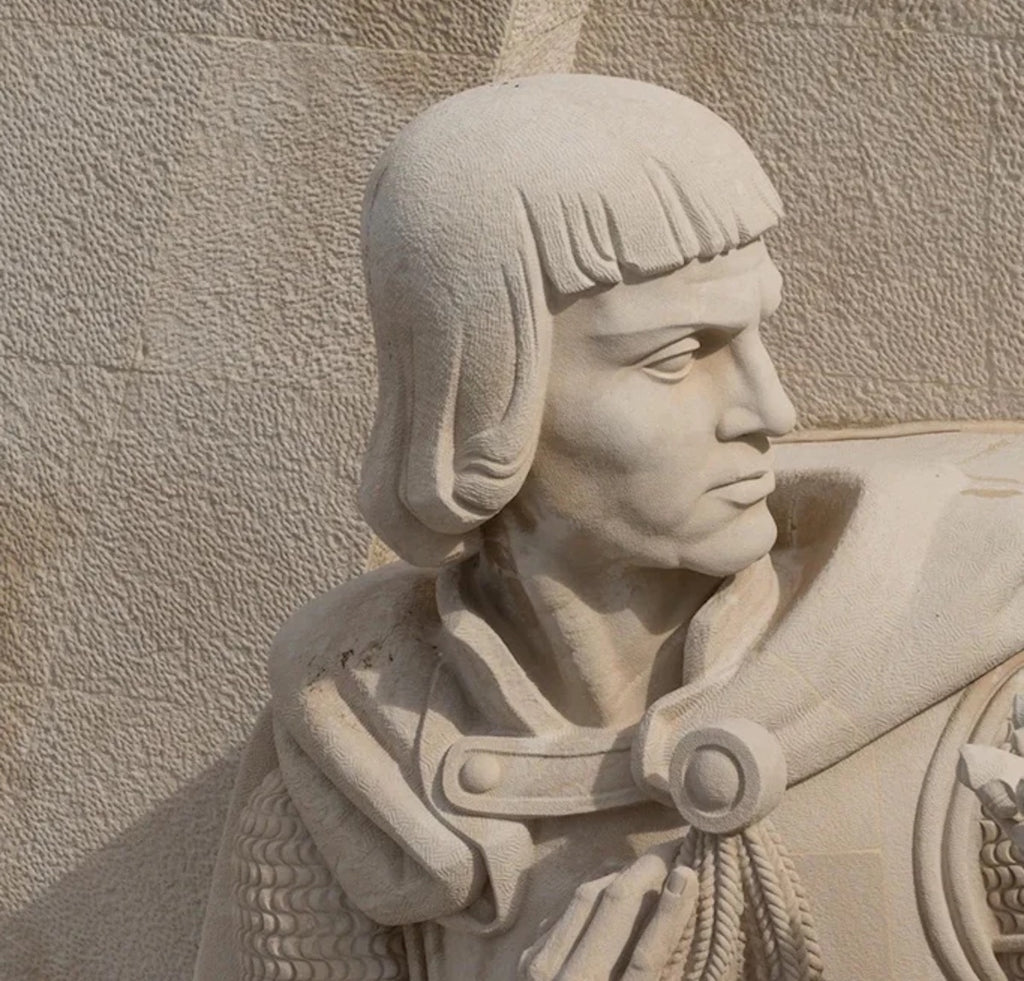
O Infante Pedro, Duque de Coimbra - Credit Luís Pavão
Sister of King Henry IV of England, wife of John I of Portugal at the end of the 14th century, she brought to Portugal the name of Lancaster and was the source of a progeny with particular intellectual qualities, nicknamed the "illustrious generation" by the poet Luís de Camões

Fernão Mendes Pinto was a Portuguese writer, soldier, diplomat, adventurer and explorer. He was probably one of the first Europeans to set foot on Japanese soil.

Brother Gonçalo de Carvalho is a Portuguese religious of the Dominican order. He is distinguished by his work in India, where he has created many Catholic communities.
Portuguese poet of the 15th century author in particular of the national epic of the Lusiades associated with the birth of the Portuguese national feeling.

If you want to know more about Luís Vaz de Camões, don't hesitate to read our blog post about the 11 world-famous Portuguese writers and if you have a little more time, read his main work "Les luisiades".
Official painter of King Alfonso V in the 15th century, he painted the Portuguese nobility and the King's court in its habits and customs. Unfortunately, none of Nuno Gonçalves' works remain.

Portuguese historian of the 15th century, author of the "Chronicles of Guinea" for King Alfonso V, a synthesis of the accounts of the explorations along the African coast.
Portuguese diplomat and explorer in the service of King John II of Portugal in the 15th century, he traveled to Africa and India gathering a wealth of information that helped prepare the expedition of Vasco da Gama.

Cartographer born on the island of Majorca, he was one of the masters and scholars that Henry the navigator surrounded himself with. It is him who trains the first cartographers of Portugal.

Portuguese explorer of the 15th century, he discovered the islands of São Tomé and Principe. He participated in Vasco de Gama's expedition in 1497 and in Cabral's expedition during the discovery of Brazil in 1500.
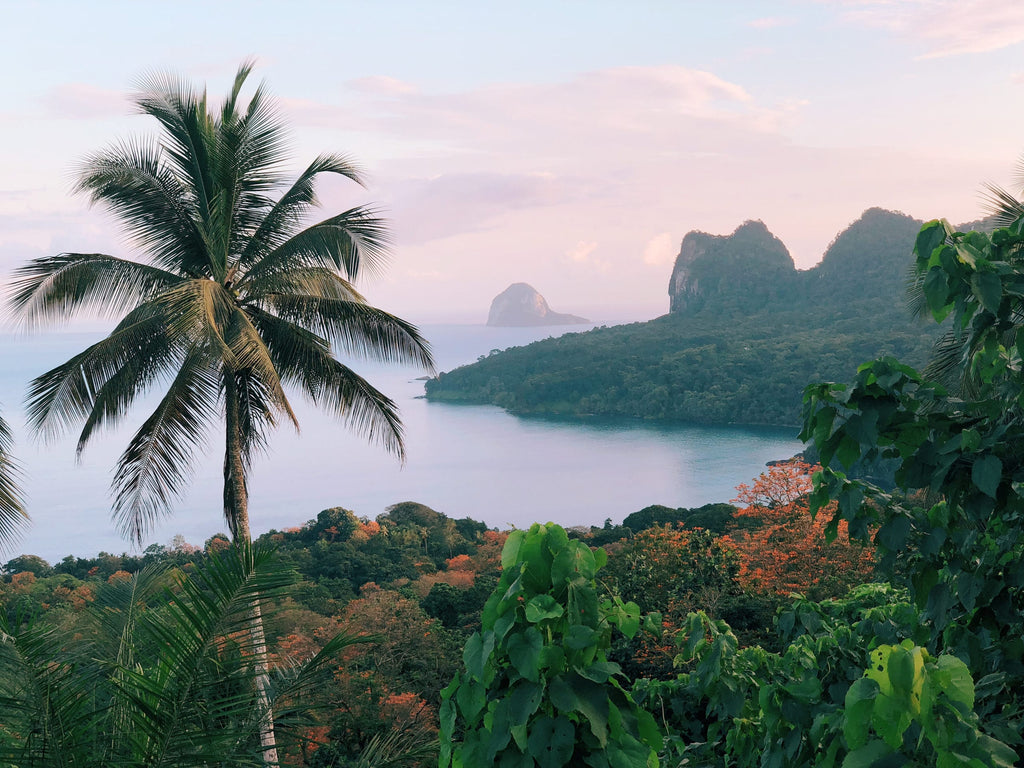
Mathematician, geometer and cosmographer, his cartographic work proved to be of crucial importance at the time of the Great Discoveries. He developed several instruments for locating at sea and measuring angles, including the nonius, a primitive version of the vernier.


Portuguese explorer of the 15th century, he accompanied Bartolomeu Dias during his voyage around the Cape of Good Hope in 1487/1488.
Portuguese explorer of the 15th century, he was the first European to reach Cape Bojador, today Cape Boujdour, in Western Sahara.

Portuguese explorer of the 15th century, knight of the Order of Christ of the House of Henry the Navigator, he approached the island of Madeira, undertook its colonization and founded Funchal and Machico
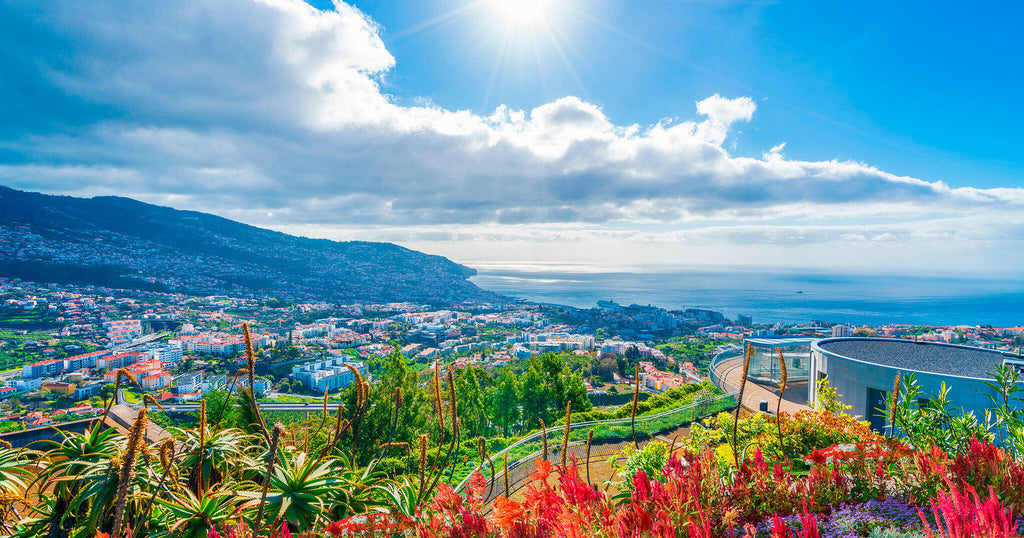
Son of John I, king of Portugal in the 15th century, he was captured in Tangier during a crusade in Muslim lands. His death in captivity aroused great emotion in the European courts. The misfortunes of this Prince are the subject of many legends.


King of Portugal in the 15th century, he was nicknamed "the African" because of his conquests in North Africa. He supported Henry the Navigator in the resumption of his explorations.

One of the greatest Portuguese navigators of the 15th century, considered the first European to arrive in India by sea, rounding the Cape of Good Hope in 1498.
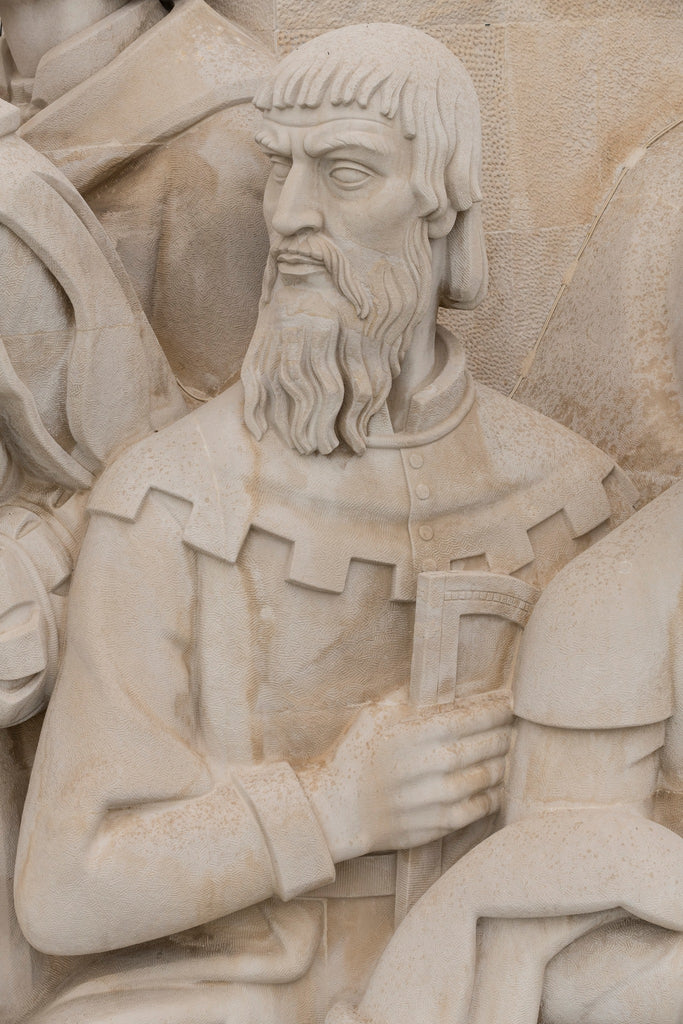
If you want to know more about Vasco da Gama, feel free to read our blog post about the 11 world famous Portuguese
Portuguese nobleman, navigator and explorer, he was one of the first settlers of Terceira, in the Azores archipelago.
Portuguese navigator of the late 15th and early 16th century, he was a fleet commander, commissioned by King Manuel Iᵉʳ of Portugal to go to the East Indies and continue the work of Vasco da Gama. He is the Portuguese explorer who takes possession of Brazil.
Fernando de Magellan, Portuguese explorer of the end of the 15th and beginning of the 16th century, was the first navigator to circumnavigate the world by the west.

If you want to know more about Magellan, feel free to read our blog post about the 11 world famous Portuguese

Portuguese navigator of the end of the 15th century, he commanded one of the three ships of the first Portuguese expedition to the Indies, and was the first Portuguese to set foot in Brazil during the 1500 expedition of Pedro Álvares Cabral.
Portuguese explorer of the early 16th century, he discovered Greenland, Labrador and Newfoundland before disappearing at sea. His brother, who went in search of him, also disappeared at sea.
Portuguese captain of the early 16th century, he acted as an administrator in Brazil and the Indies on behalf of the Portuguese crown.
Portuguese historian, writer and linguist of the early 16th century, he led several expeditions to Brazil and wrote chronicles of the great Portuguese explorations.
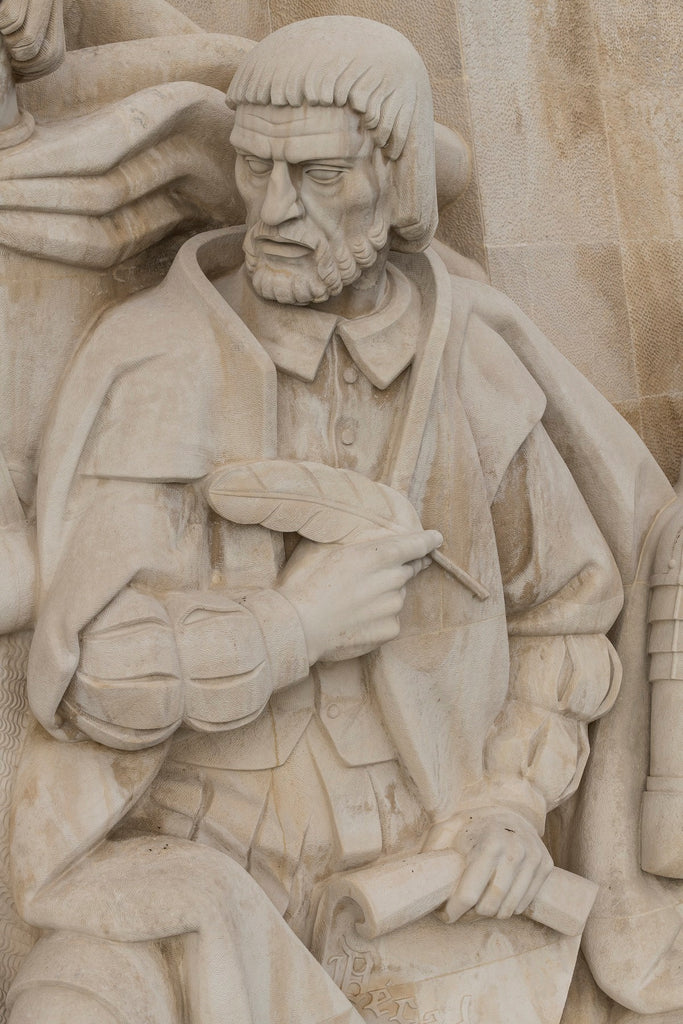
João de Barros - Credit Luís Pavão
Portuguese navigator and diplomat of the 16th century. He was governor of the Portuguese Gold Coast and then of Portuguese India from 1540 to 1542.
Portuguese explorer of the end of the 15th century, he is the first European navigator to have passed the southern tip of Africa.

If you want to know more about Bartolomeu Dias, feel free to read our blog post about the 11 world famous Portuguese
Portuguese explorer of the second half of the 15th century, he explored the Atlantic coast of Africa and was the first to place Padrão, stone markers marking the Portuguese territory.
Portuguese explorer of the beginning of the 16th century, he participated in several expeditions and then, at the head of 3 ships he discovered Timor.
Portuguese soldier, navigator, explorer, and then politician of the 15ᵉ and 16ᵉ centuries. He was governor of the Portuguese Indies from 1509 to 1515 and one of the great figures of Portuguese expansion in the East

A 16th century missionary, he landed in Goa, a Portuguese trading post, and created the first school run by a Jesuit: Saint Paul's College. He was canonized in 1622.
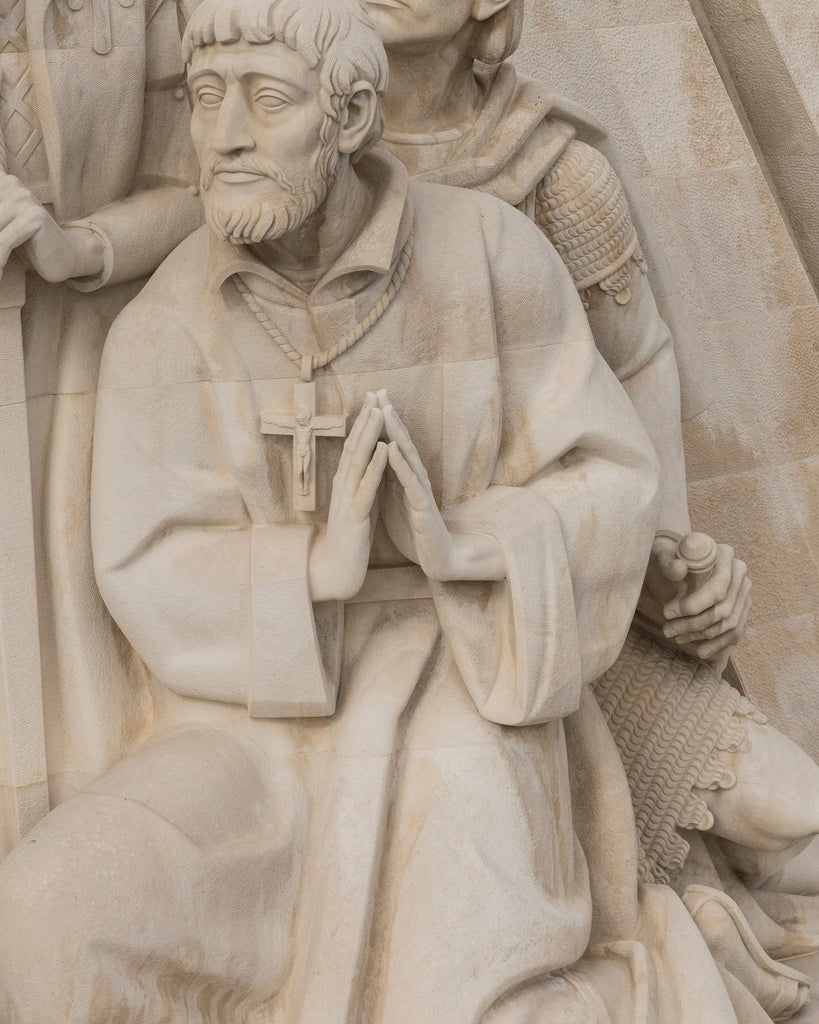
Son of Vasco de Gama, he was a Portuguese soldier who led an army on an expedition to Ethiopia against the Adalite army. He was victorious in four battles against much larger forces, before being defeated, captured and beheaded.
From fabulous or unusual gifts to little ones... For him, for her or for the little ones... Discover 30 Portuguese gift ideas for Christmas
Curious about Portugal and its history? Take 5 minutes to read our blog post!
Peri-Peri is a small chili pepper known for its complex, fruity flavors. Where does it originate? What are the best Peri-Peri recipes? How can you make your own Peri-Peri sauce? Where can you find the best Peri-Peri sauces?


